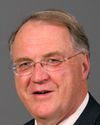Mr. Speaker, once again the leader of the NDP asserts a whole bunch of statements in his preamble and attributes those to the Auditor General, which are things the Auditor General never said.
What the government has said is that it is responding specifically to the recommendation of the Auditor General. The government is going beyond those recommendations in ensuring we re-examine all aspects of this to ensure that before we spend any budget, because we have not yet spent any budget on acquisition, we make sure we have all the answers that cabinet requires.













